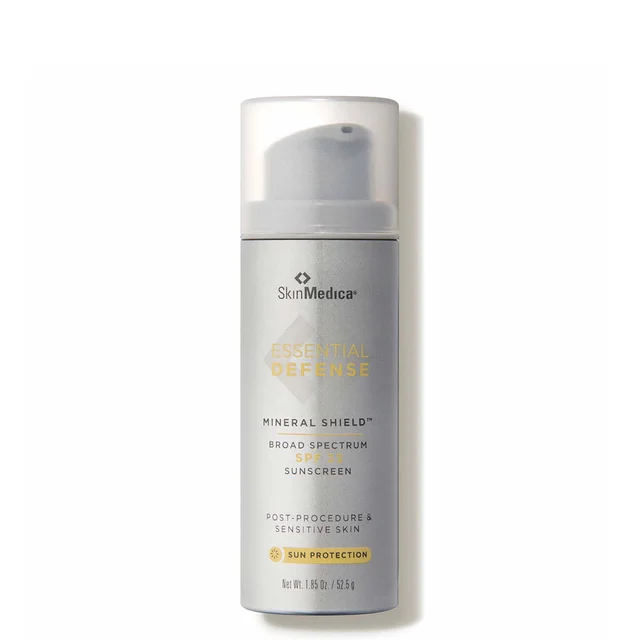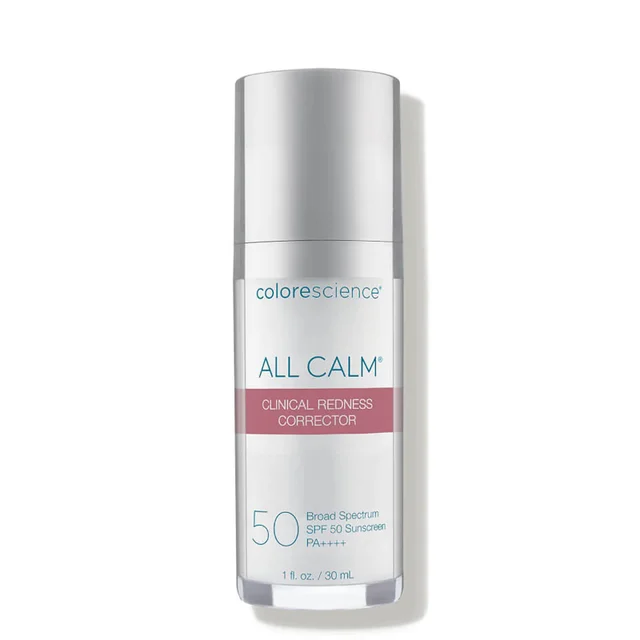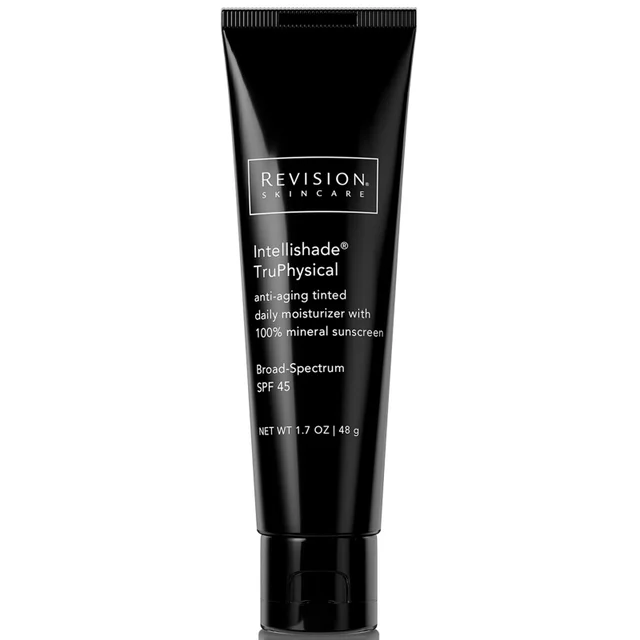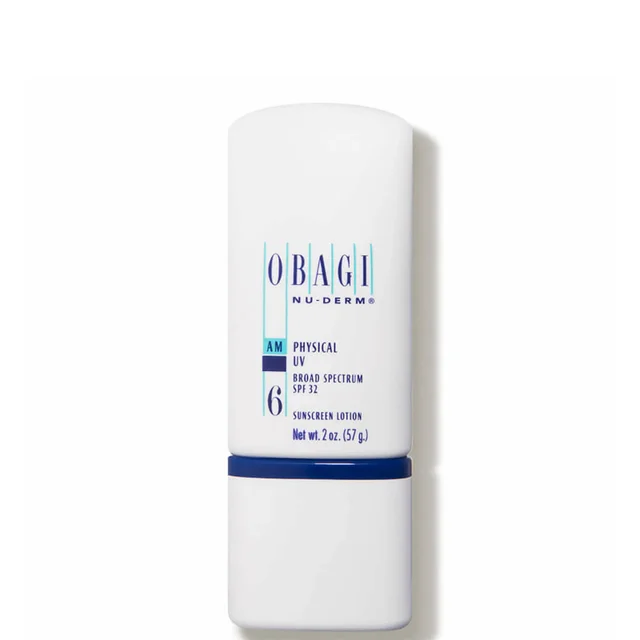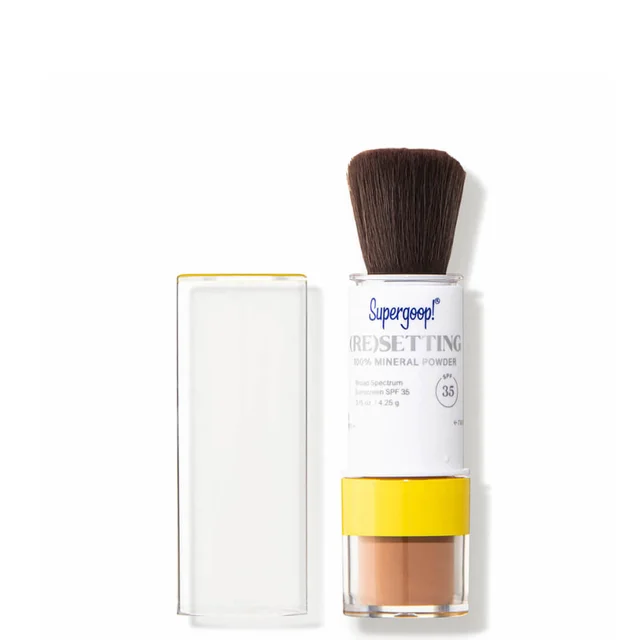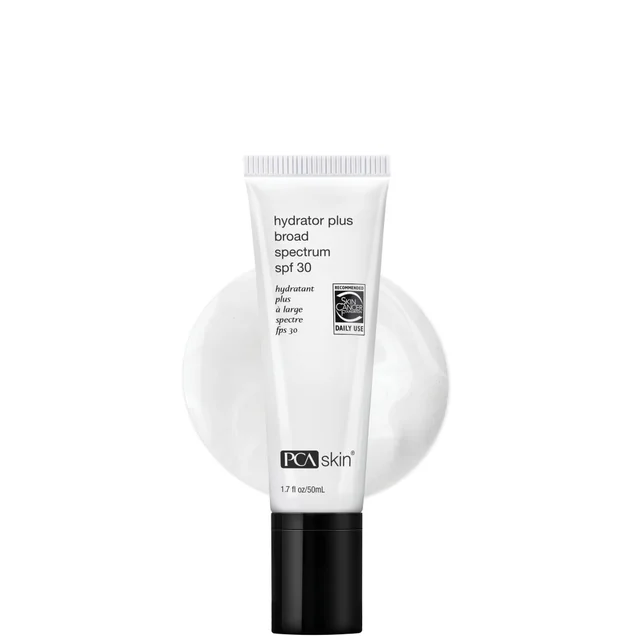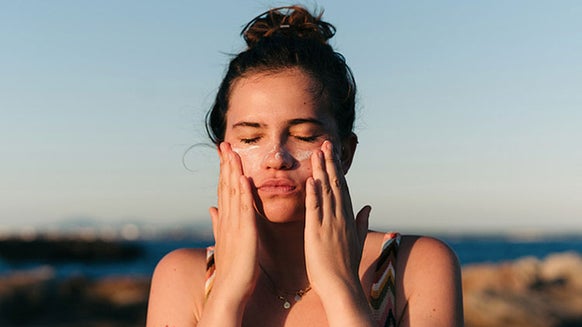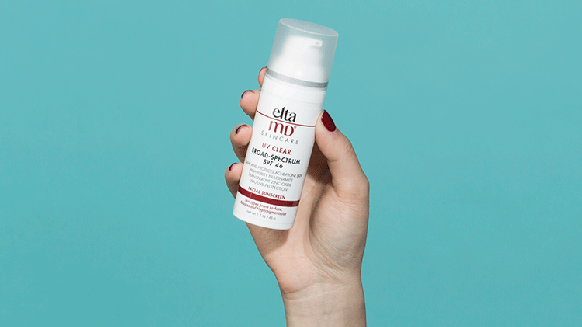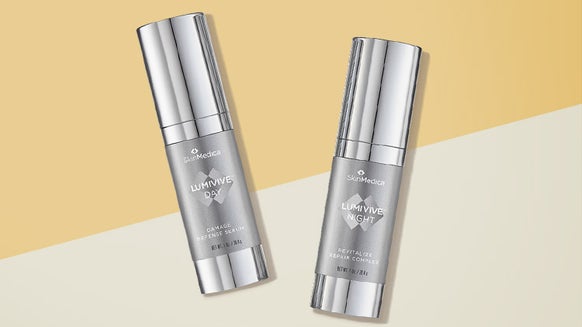Safe in the Sun: Understanding What Zinc Oxide Sunscreen Is
Sun protection is such a crucial step in maintaining healthy skin that it’s no longer something you can only get from traditional sunscreens. For some time now, skin care and makeup products formulated with SPF have been steadily becoming a thing—from lip glosses and foundations to mists and moisturizers. And if you’ve been meticulous in reviewing the back labels of these products, you’ve likely noticed that most of them have one ingredient in common: zinc oxide.
Backed by skin care pros, zinc oxide is considered one of the most effective types of UV protection, but how exactly does it work? And more importantly, what makes zinc oxide sunscreen different from regular SPF? Below, we break down everything you need to know about zinc oxide sunscreen and help you understand why this mineral is your best ally as you fight the good fight against UV damage.
Table of Contents:
- What Is Zinc Oxide?
- How Does Zinc Oxide Work in Sunscreens?
- What Are the Benefits of Zinc Oxide Sunscreen?
- How to Choose the Right Zinc Oxide Sunscreen
- Top Picks: The Best Zinc Oxide Sunscreens
- The Bottom Line
What Is Zinc Oxide?
Zinc oxide is a FDA-approved powdery compound that comes from oxidizing zinc. This oxidation process can occur naturally, resulting in the formation of its mineral form zincite. But because zincite is so rare, most commercial products use a lab-reproduced version of the ingredient.
The use of zinc oxide in skin care is nothing new. Scientists have been studying the compound since the 1930s, and its earliest recorded use can be traced all the way back to a medical text from ancient India. Besides earning a rep as an A-list sunscreen ingredient, zinc oxide is also known for its skin-healing properties and is commonly found in diaper rash creams, acne treatments, and anti-inflammatory creams and lotions.
How Does Zinc Oxide Work in Sunscreens?
Sunscreens come in two different types—chemical and mineral or physical sunscreens—and their main difference lies in how they deal with UV rays. A chemical sunscreen penetrates the skin’s upper layers and works like a sponge. It intercepts the sun’s UV rays and alters their chemical structure before they reach and damage your skin’s deeper layers. Some of the most common ingredients found in chemical SPFs are avobenzone, octinoxate, and oxybenzone.
On the other hand, mineral or physical sunscreens act like a shield. Think of them as microscopic hats and umbrellas for your skin. Unlike their chemical counterparts, physical sunscreens don’t get absorbed by the skin. Instead, they sit on the surface, reflecting and scattering UV rays away from your skin, essentially forming a barrier between your complexion and the sun’s radiation. Zinc oxide, together with its SPF bestie titanium dioxide, falls under this category.
“As a mineral-based sunscreen active ingredient, zinc oxide reflects light off the surface of the skin where the sunscreen is applied back into the environment, much like a mirror,” says Melanie D. Palm, M.D., a San Diego-based dermatologist, cosmetic surgeon, and founding director of Art of Skin MD. “Zinc oxide can be ‘micronized,’ meaning it’s processed into very small particles, so small that the preparation appears clear when applied on the skin.”
What Are the Benefits of Zinc Oxide Sunscreen?
When it comes to sun protection, zinc oxide sunscreen is praised for its comprehensive UV-filtering abilities while being gentler on the skin and the environment. Here are the top benefits of zinc oxide sunscreens:
Broad spectrum defense
As a physical UV filter, zinc oxide provides natural broad-spectrum defense, delivering year-round protection from both UVA and UVB radiations as well as from infrared and even blue light.
“It’s a photostable, broad-spectrum sunscreen, so it has one of the broadest UVA coverages of all the sunscreen ingredients currently available in the U.S, as well as UVB coverage,” says New York-based dermatologist Sejal Shah, M.D., founder of Smarter Skin Dermatology and contributor to the cosmetic treatment site RealSelf.
Gentle and sensitive skin-friendly
Sunscreens with zinc oxide are often non-comedogenic, which means they are less likely to clog pores and cause breakouts. They are gentle and suitable for all skin types, including those with sensitive or highly reactive skin and those coping with conditions like acne and rosacea. And because they don’t penetrate the skin’s layers, you’re not unwittingly absorbing harsh chemicals into your skin and bloodstream.
Long-lasting protection
When exposed to direct UV light, zinc oxide sunscreens tend to last longer than chemical SPFs. They also have a better shelf life, so you can keep them handy for a good while without worrying about losing effectiveness and get more bang for your buck.
Works right away
You typically need to give chemical sunscreens a bit of time (20 to 30 minutes) to get things in order before you can go out in the sun. On the other hand, zinc oxide sunscreen hits the ground running and gets to work immediately. “Because it is a physical blocker, it works as soon as you apply it, so technically, it does not need to be applied 15–30 minutes before sun exposure, as a chemical sunscreen does,” explains Dr. Shah.
Skin care benefits
Zinc oxide has been found to have anti-inflammatory properties that support skin healing and soothe conditions like acne, rosacea, and eczema. “Additionally, patients with skin discoloration, including melasma, will benefit from zinc oxide’s ability to block not only UV light but also visible and infrared light while not producing heat, which can aggravate pigmentary problems,” adds Dr. Palm.
Plus, naturally formulated zinc oxide sunscreens are often packed with good-for-your-skin ingredients that not only enhance your skin’s UV defense but also skin health. This includes powerful hydrators like hyaluronic acid and protection-boosting antioxidants from botanicals and marine extracts.
Better for the environment
One of the most compelling reasons to switch from chemical to physical sunscreens is their environmental impact. Unlike mineral sunscreens, which are considered reef-safe, chemical sunscreens often contain ingredients that harm marine life and have even prompted some beach destinations like Hawaii to ban certain types of sunscreens. Oxybenzone, for example, is a common chemical sunscreen ingredient that has been linked to coral bleaching.
How to Choose the Right Zinc Oxide Sunscreen
Just like choosing any skin care product, picking out the right zinc oxide sunscreen ultimately starts with your skin type and needs. But it doesn’t end there. Sunscreens have a very specific and far too important job to do, so it’s best to keep these factors in mind when choosing your SPF:
Non-comedogenic and hypoallergenic: While zinc oxide sunscreens are deemed gentler on the skin, those who have sensitive and oily skin types, or if you simply want to play it on the safer side, would benefit from a non-comedogenic and non-irritating formula to prevent your skin from breaking out.
SPF 30 or higher and broad spectrum: The American Academy of Dermatology and the Skin Cancer Foundation recommend at least an SPF 30 sunscreen for daily use, even on cloudy days or during winter. But if you’re looking for more comprehensive sunscreen protection, your best bet is a broad-spectrum SPF 50 sunscreen, which filters up to 98 percent of UVB rays while also shielding your skin from UVA radiation.
Formulation: As the experts say, the best sunscreen is one you’ll use. So, make sure you’re choosing a formula that makes regular use and reapplication a breeze. The good news is, zinc oxide sunscreens come in all shapes and formulations, so you’re sure to find one that suits your preferences—whether you’re looking for a moisture-packed cream or a handy mineral face powder.
Water-resistant: Opt for a sunscreen that’s water-resistant (up to 40 or 80 minutes), especially if you’re going to spend time in the water or engaging in outdoor activities that can cause a lot of sweating.
Top Picks: The Best Zinc Oxide Sunscreens
Ready to switch to a zinc oxide sunscreen for your next sun-filled vacay? Here are Dermstore’s top picks for best zinc oxide sunscreens:
Harnessing the powerful sun-defending properties of 100 percent mineral actives zinc oxide and titanium dioxide, together with vitamins C and E antioxidants, hyaluronic acid, and iron oxide, this tinted sunscreen is a UV filter and skin-health enhancer in one. It provides broad-spectrum defense from UVA and UVB rays and continues to protect your skin as you head indoors. All thanks to its advanced formula that also blocks up to 56 percent of HEV or blue light while increasing hydration, calming redness, and blurring blemishes.
If you’ve been on the lookout for a sunscreen that won’t irritate your sensitive skin, then your search ends here. Formulated for sensitive and post-procedure skin types, this lightweight mineral sunscreen is also infused with green tea to calm redness and caffeine to minimize puffiness and inflammation. Users love how it applies smoothly and blends easily, leaving a non-greasy feel and no white cast.
This chemical-free mineral sunscreen takes skin protection to a whole new level with its 3-in-1 formula that offers broad-spectrum UVA/UVB defense, refines visible blemishes and signs of rosacea and acne, and provides ongoing and long-term relief from redness and sensitivity. Dermstore users rave about how effective it is in toning down redness and discoloration, but its thick consistency may not be everyone’s cup of tea.
Featuring 100 percent all-mineral technology, vitamin C, and powerhouse hydrators, this award-winning 5-in-1 sunscreen moisturizer does them all and does them well. It corrects, protects, conceals, brightens, and hydrates the skin while making sure your skin stays safe under the sun with its broad-spectrum UVA and UVB protection. According to a Dermstore user, this multitasking tinted SPF provides just the right amount of coverage and holds “extremely well” under the sun.
Aside from being a zinc oxide sunscreen, this moisturizer also acts as a skin brightener powered by a natural hydroquinone alternative from tara tree and African potato, licorice root, and Swiss alpine plant extracts. It protects skin from UV radiation while fading dark spots, improving skin tone, and enhancing complexion. Dermstore users praise this SPF moisturizer for noticeably enhancing skin tone and mention the need to blend the product carefully to remove the faint white cast.
Weightless and non-greasy, this moisturizing zinc oxide sunscreen is formulated to not only block UVA and UVB rays but also enhance moisture. Users love how its gentle formula doesn’t irritate the skin and leaves the skin feeling moisturized and with an even finish.
A sunscreen and setting powder in one, this mineral powder is infused with ceramides, olive glycerides, and coated silica spheres to replenish and restore the skin’s barrier, refine pores, and enhance your UV protection—all while setting your makeup, reducing shine, and creating a soft-focus finish. One Dermstore user shares that this sunscreen powder makes SPF touch-ups quick and easy while also toning down oil and shine throughout the day.
This hydrating SPF makes sure your skin is protected from UV damage inside and out. Zinc oxide shields your skin from UVA and UVB radiation while caffeine, a powerful antioxidant, works from within to counter free radical damage and oxidative stress. It’s also infused with intense hydrators to keep your skin quenched and moisturized throughout the day. One Dermstore user credits this sunscreen for keeping her skin free of sun damage and dark spots, while another loves that it’s hydrating and leaves no white cast.
The Bottom Line
Sun protection is a must in every skin care routine. While both mineral and chemical sunscreens provide your skin with necessary UV defense, there are key differences between the two that give the former a significant edge over the latter. Mineral or physical sunscreens like zinc oxide can often be more effective than chemical sunscreens because of their broad-spectrum protection against UVA and UVB radiation, HEV, and infrared light; immediate and longer-lasting protection; and non-harsh formulas that are gentler on your skin and the environment. Plus, zinc oxide is known for its anti-inflammatory and soothing properties, making it ideal for skin conditions like acne, rosacea, and eczema.

Janeca Racho is a Journalism graduate with over 15 years of writing experience. After getting her start in public relations and advertising, she made the switch to freelance writing and began working for various lifestyle, fashion, and travel brands. Her love for all things skincare has led her to beauty reporting and research for the last ten years. Writing for several hair and beauty blogs, she reports on anti-aging staples, trending brands and products, must-have ingredients, and health and wellness.

